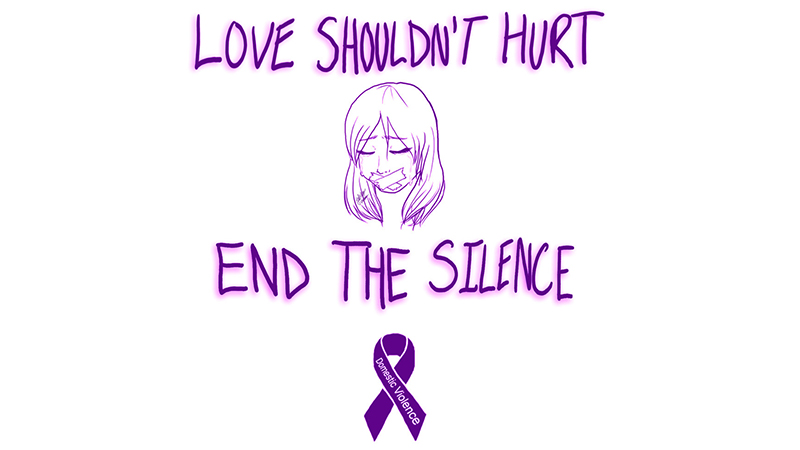The Purple Door: Love shouldn’t hurt
Published 4:06 pm Friday, February 9, 2018
Last October, Steps to Hope (STH) sponsored the first Domestic Violence Awareness Walk at Stearns Park. They offered free hot dogs, games, and of course t-shirts with a simple message: “Love Shouldn’t Hurt”. The “walk” was eye-opening and heartbreaking, particularly the facts surrounding teen dating and the violence associated with it.
In a 2017 report, the CDC defined teen dating violence as “…the physical, sexual, psychological, or emotional violence within a dating relationship, including stalking. It can occur in person or electronically and might occur between a current or former dating partner.” It goes on to explain that teens learn “relationship behavior” from the media, adults they know, and peers. All too often the message they get is that relationship violence is normal.
Certain risk factors are connected to dating violence: belief that dating violence is ok; engaging in early sexual activity with multiple partners; violence in the home, to name a few. The short and long-term effects, during this important time of emotional development, are serious and long-lasting. Kids are afraid to tell anyone about the negatives…so they don’t report the violence. And because they think it’s standard, it sometimes takes a while for them to realize they are being abused. Teens who have had abusive or violent relationships are likely to exhibit: depression or anxiety; tobacco, drug and alcohol abuse; thoughts of suicide.
Trending
As parents, we view dating from our own experience – healthy, wholesome, a rite of passage. But today it’s all underground where we can’t see it or hear it. There’s more going on than hanging out with friends. Commitment is not expected, but sexual activity is. And to teenagers, these are not negotiable. They’re just trying to fit in and be accepted. “Friends with Benefits” was made popular by Justin Timberlake and Mila Kunis. The radio is inundated with songs glorifying “booty calls.” Who can compete with that?” Unfortunately, teens who reject this behavior open themselves to intimidation, verbal abuse, isolation, digital abuse, and cyber-bullying. If there’s one thing the “Me Too!” movement has done, it’s called out this behavior for what it is – abusive – objectifying one person for the benefit of the other through abuse and violence!
So how do we, parents, teachers, friends, peers, leaders change it? Well, first we must admit that it’s happening. Then, we must offer the tools to recognize healthy relationships. Most importantly we must encourage teens to stand up, step out, and speak up.
The mission of STH is to help stop the cycle of local domestic and sexual abuse. To that end they’ve created pocket cards outlining abusive behavior for easy identification: name-calling, intimidation, temper tantrums, sexual abuse, and threats of physical violence, etc. Their resources list warning signs of the victims: isolation; excusing bad behavior and signs of physical violence; an unusual obsession with cleanliness (which could signal sexual abuse or rape). Other pocket cards give victims a plan for successful escape. In middle and high schools STH has designed bulletin boards (updated monthly) that illustrate the characteristics of healthy relationships and being a strong individual and teen. The best part is that teens have access to the local “help” line where they can speak confidentially with a counselor to report abuse and get out of a dangerous situation.
Our job is to be the strength and courage behind a NEW posture. According to the CDC: “Dating violence can be prevented when teens, families, organizations, and communities work together to implement effective prevention strategies.” I invite you to join the movement! Become part of the solution!
For more information about these resources, ways you can help, or information on underwriting opportunities, please call Steps to Hope (828-894-2340), go to the website www.stepstohope.org or check out the CDC resource page:
https://www.cdc.gov/ViolencePrevention/intimatepartnerviolence/teen_dating_violence.html
Trending
If you are a victim and need help, there is an excellent local resource available to you, Steps to HOPE in Columbus, N.C. Call 828-894-2340 or email steps@stepstohope.org. There are wonderful, skilled staff that can help you, just contact them.
written by Diane Nelson






